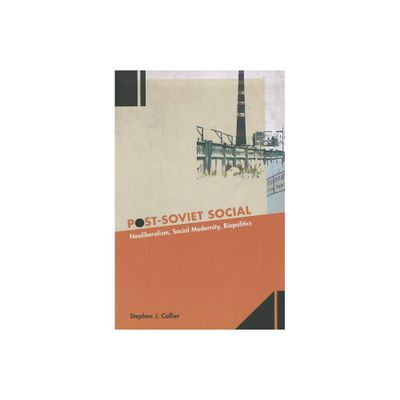Home
Lost to the Collective: Suicide and the Promise of Soviet Socialism, 1921-1929
Loading Inventory...
Barnes and Noble
Lost to the Collective: Suicide and the Promise of Soviet Socialism, 1921-1929
Current price: $64.95


Barnes and Noble
Lost to the Collective: Suicide and the Promise of Soviet Socialism, 1921-1929
Current price: $64.95
Loading Inventory...
Size: OS
*Product Information may vary - to confirm product availability, pricing, and additional information please contact Barnes and Noble
As an act of unbridled individualism, suicide confronted the Bolshevik regime with a dilemma that challenged both its theory and its practice and helped give rise to a social science state whose primary purpose was the comprehensive and rational care of the population. Labeled a social illness and represented as a vestige of prerevolutionary culture, suicide in the 1920s raised troubling questions about individual health and agency in a socialist society, provided a catalyst for the development of new social bonds and subjective outlooks, and became a marker of the country's incomplete move toward a collectivist society.
Determined to eradicate the scourge of self-destruction, the regime created a number of institutions and commissions to identify pockets of disease and foster an integrated social order. The Soviet confrontation with suicide reveals with particular force the regime's anxieties about the relationship between the state and the individual. In
Lost to the Collective
, Kenneth M. Pinnow suggests the compatibility of the social sciences with Bolshevik dictatorship and highlights their illusory promises of control over the everyday life of groups and individuals.
The book traces the creation of national statistical studies, the course of medical debates about causation and expert knowledge, and the formation of a distinct set of practices in the Bolshevik Party and Red Army that aimed to identify the suicidal individual and establish his or her significance for the rest of society. Arguing that the Soviet regime represents a particular response to the pressures and challenges of modernity, the book examines Soviet socialism—from its intense concern with the individual to its quest to build an integrated society—as one response to the larger question of human unity.
Determined to eradicate the scourge of self-destruction, the regime created a number of institutions and commissions to identify pockets of disease and foster an integrated social order. The Soviet confrontation with suicide reveals with particular force the regime's anxieties about the relationship between the state and the individual. In
Lost to the Collective
, Kenneth M. Pinnow suggests the compatibility of the social sciences with Bolshevik dictatorship and highlights their illusory promises of control over the everyday life of groups and individuals.
The book traces the creation of national statistical studies, the course of medical debates about causation and expert knowledge, and the formation of a distinct set of practices in the Bolshevik Party and Red Army that aimed to identify the suicidal individual and establish his or her significance for the rest of society. Arguing that the Soviet regime represents a particular response to the pressures and challenges of modernity, the book examines Soviet socialism—from its intense concern with the individual to its quest to build an integrated society—as one response to the larger question of human unity.


















